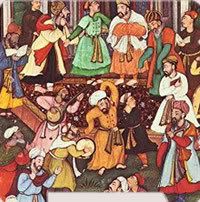
Dipali Nag was born on February 22, 1922 at Darjeeling. Her father, Jiban Chandra Talukdar, was a Professor of History in Agra. She took to Hindustani classical music at an early age. In those days when women singers from cultured homes were almost a rarity, Dipali Nag stood out as a source of inspiration, pioneering the spread of classical and semi-classical music among the ladies. She started broadcasting from All India Radio in 1939 and her recordings with HMV and other recording companies were also in the same year.
Dipali Nag - Raga Jaunpuri - Chhananana Bichchua Baje :
Dipali Nag - Raga Bihag Bandish - Chooriyan Baar Baar :
Dipali Nag - Raga Bhairavi Thumri :
Dipali Nag - Raga Jaijaiwanti :
Dipali Nag was about twenty years old when she married Dr. B D Nag Chowdhury, an eminent scientist (of Nag missile fame) and scientific advisor to Indira Gandhi, the late Prime Minister of India. A versatile person, Dipali Nag later earned her PhD from Berkley, authored books and articles that earned her great renown, delivered lectures in different parts of the globe and participated in numerous concerts. She passed away on December 20, 2009 in Gandhinagar, Gujarat following a major cerebral attack.








